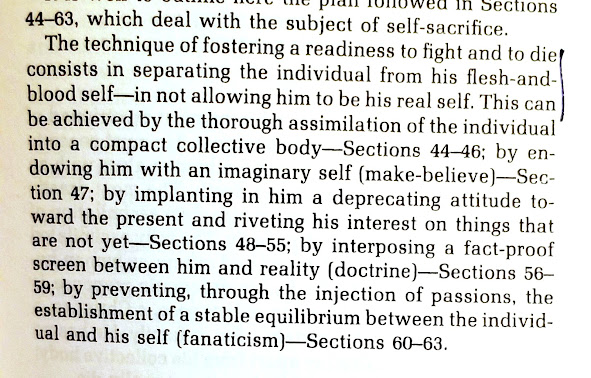201210 What I learned in my studies this morning
From Athenodorus of Tarsus:
As important as study and contemplation are, I must allow myself respite at times. To avoid becoming overwhelmed with life, responsibility, problems, and the like, it is perfectly reasonable to temporarily retreat to a time with friends, to a time for play and ease and relaxation.
When you find yourself getting angry . . . do not say or do anything until you have repeated the alphabet to yourself.
(Lives of the Stoics, pp. 163-167)
From The Daily Stoic:
From Eric Hoffer, starting Part III, United Action and Self-Sacrifice:
The vigor of a mass movement stems from the propensity of its followers for united action and self-sacrifice.
For those without a gratifying sense of self, without a feeling that they are personally worthy, mass movements offer a replacement ready-made.
...in times of peace and prosperity, a democratic nation is an institutionalized Association of more or less free individual. On the other hand, in time of crisis, when the nation's existence is threatened, and it tries to reinforce its unity and generate in its people of readiness for self-sacrifice, it almost always assumes in some degree character of a mass movement.
Such diverse phenomena as a deprecation of the present, a facility for make-believe, a proneness to hate, a readiness to imitate, credulity, a readiness to attempt the impossible, and many others which crowd the Mind of the intensely frustrated are... unifying agents and prompters of recklessness. ...the technique of an active mass movement consists basically in the inculcation and cultivation of proclivities and responses indigenous to the frustrated mind.



Comments
Post a Comment
Please note that I am not saying I agree or disagree with what is posted above. It is merely a recording of what I read this morning.